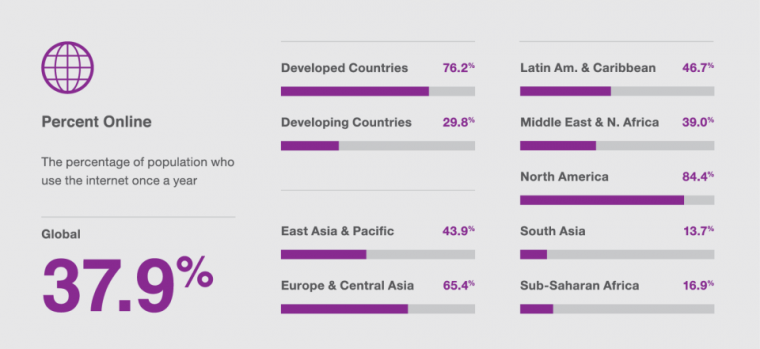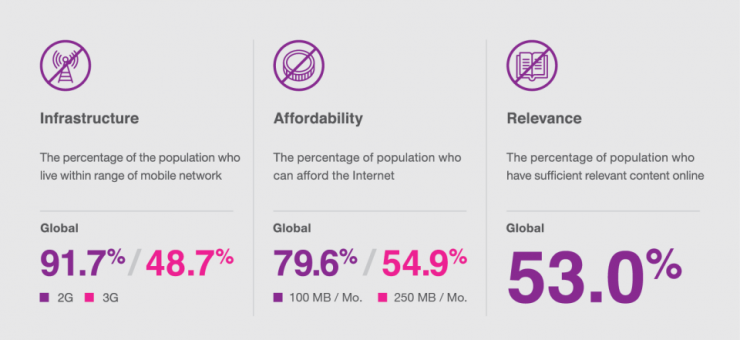“The internet is really the backbone of the knowledge economy.”
—Internet.org
The internet is practically the best channel to transfer information. The information that can be shared in the internet could be used for any aspect that is related to growth and development like education, business, entertainment, and technology. The fact is the internet is only accessible to a minority of people. In the latest report by Internet.org, roughly 37.9% of the world’s total population has access to the internet on a yearly basis.
Moreover, the growth of users has slowed down in the past years. Internet.org reports that 2014 registered a percentage of growth at 6.6% (down from 14.7% from 2010).
The study points at 3 barriers that hamper access to the internet. These barriers need to be addressed in order to achieve a higher number of users.
Here are the 3 reasons why people are not online:
- Infrastructure – There are still people who are living outside of range from infrastructures that allow the use of the internet.
- Affordability – There are areas where people can’t afford the cost of connecting to the internet.
- Relevance – Some people are still not aware about the use of the internet. The internet is currently available in 53 languages. At least 93 languages is needed before a larger percentage of the world could see the relevance of the internet.
You can view the full report here.


